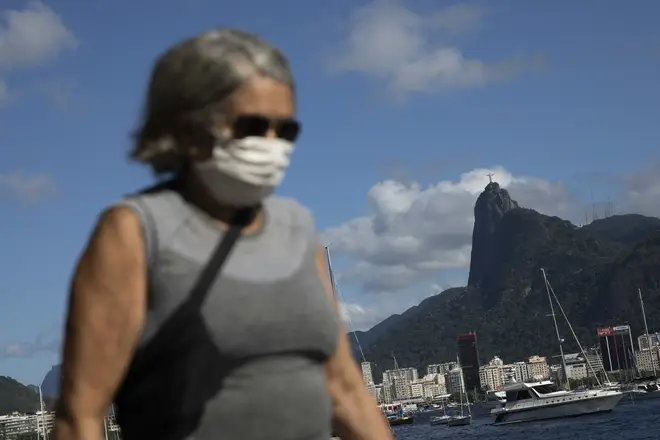
Nick Abbot 10pm - 1am
20 June 2020, 08:26

Brazil has become the second country to pass more than one million confirmed coronavirus cases, with total deaths close to 50,000.
As of Friday, the country had 1,032,913 confirmed cases, with 1,206 new deaths, with 1,206 new deaths taking the total official fatalities to 48,954, according to the country's health ministry.
There was also a record daily number of cases at 54,771.
The ministry claimed that the sharp increase in cases was due to reporting system corrections in some states from previous days.
Specialists believe the actual number of cases could be up to seven times higher than the official statistics.
It's thought Brazil is performing an average of 14 tests per 100 thousand people each day.
Experts say as much as 20 times as many tests need to be carried out to track the virus.
Brazil confirmed its first case of coronavirus on 26 February.

The country's President, Jair Bolsonaro, has been widely criticised for his handling of the crisis.
He has previously called the pandemic "a little flu" and has refused to wear a face mask or practise social distancing.
He has also promoted two anti-malarial drugs as remedies, chloroquine and hydroxychloroquine, despite little evidence they work.
He also still insists the impact of enforcing social isolation measures on the country's economy would be worse than the disease itself.
The outbreak is likely to cause a huge impact on the country's problematic economic state.
The government has said the economy will contract by 4.7% this year, while economists at the central bank think it will fall more than 6%.
Official data shows there's a downward trend in the virus in the north - including the hard-hit Amazon region.
There's a plateau in cases and deaths in the country's biggest cities near the Atlantic coast - but a rising curve in the south.
The pandemic is clearly growing in the Brazilian countryside, which is much less prepared to handle a crisis.
Many smaller cities have weaker healthcare systems and basic sanitation that's sufficient to stop contagion.
The World Health Organisation says Brazil needs to increase its efforts to stop the spread of infections.